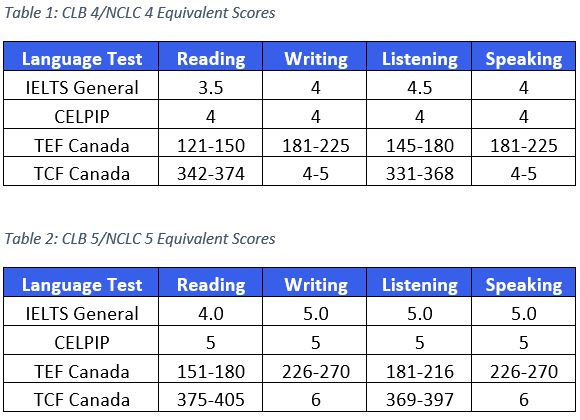Atlantic Immigration Program
For foreign nationals with a job offer from a designated employer in Canada's Atlantic provinces
The Atlantic Immigration Program is highly attractive to foreign nationals due to its relatively low language and proof of funds requirements.
IRCC created the Atlantic Immigration Program (AIP) to replace the Atlantic Immigration Pilot Programs (AIPP) which closed on December 31, 2021. The AIP is a permanent immigration program which was designed to help employers in the Atlantic provinces of Nova Scotia, New Brunswick, Prince Edward Island and Newfoundland & Labrador ease their labour shortage by issuing permanent resident visas to eligible workers and international graduates.
As of now, the processing time is 12 months. That means that from the date you submit your application, you can potentially receive a permanent resident visa within one year.
In this post, you will learn about the Atlantic Immigration Program and understand the eligibility requirements.
Table of Contents
Former Atlantic Immigration Pilot Programs Overview
The Atlantic Immigration Pilot Programs (AIPP) was launched in 2017 to help employers in Atlantic provinces hire workers and international graduates. Atlantic provinces are currently facing a large labour shortage, and for that reason, need foreign workers. A benefit of applying for the AIPP is that the job offer is LMIA-exempt. Since this was a pilot program, it was only intended to be active for five years. Due to the success of this pilot program, Immigration, Refugees and Citizenship Canada (IRCC) created a permanent immigration program out of it, starting January 1, 2022, called the Atlantic Immigration Program (AIP). In the previous AIPP, there were three distinct programs called:
Under the new Atlantic Immigration Program, they have all been combined together under one program.
In order to be eligible, you must intend to live in one of the Atlantic provinces as a permanent resident. Other eligibility criteria depends on the skill level of your job offer. For more information, continue reading.
Work Experience
To be eligible under the Atlantic Immigration Program, you must have worked at least 1,560 hours in the past five years in a paid occupation that is in the NOC 2021 TEER 0, 1, 2, 3 or 4 categories. The hours must have been accumulated over a period of at least 12 months. Work experience acquired while studying is accepted if you did not exceed the number of hours authorized for work. Periods of self-employment do not count. Search your occupation NOC code here: Find your NOC.
Your work experience (inside or outside Canada) must include the actions in the description of your NOC code as well as most of the main duties outlined for your NOC code.
International Graduates
International graduates of post-secondary institutions in Atlantic Canada do not need work experience. To be eligible as an international graduate, you must have lived in one of the Atlantic provinces for at least 16 months in the two years before earning your education credential.
The eligibility criteria for an international graduate is as follows:
Recognized post-secondary institutions can be found here: Atlantic Immigration Program: Recognized post-secondary institutions.
Education Requirements
You must have one of the following:
If your job offer falls under the NOC 2021 TEER 0 or 1 category, you must have at least an education credential that is equivalent to a Canadian one-year post-secondary certificate. For NOC 2021 TEER 2, 3 or 4 category job offers, you will need an education level equivalent to at least a Canadian high school certificate.
Language Requirements
For the Atlantic Immigration Program, you must score at least CLB 5 for English or NCLC 5 for French if your job offer is for a NOC TEER 0, 1, 2 or 3 category. For job offers in a NOC TEER 4 category, you must score at least CLB 4 for English or NCLC 4 for French.
The results of this language test must be less than two years old. The table below shows the equivalent scores for each approved language test:

Source: Canada.ca
Settlement Funds
Before you can come to Canada under the AIP, you must show a proof of spendable funds based on your family size. In order to find out how much money you will need, click the following link: Proof of Funds.
Job Offer
All job offers for skilled workers must be from a Designated Employer. You can find a list of all the Designated Employers on each province's official website:
The following are the requirements for a valid job offer:
Additionally, the job offer must be for an occupation that is at the same NOC 2021 TEER category, or higher, than your qualified work experience. For example, if you have valid work experience in a NOC 2021 TEER 2 occupation, your job offer can be for a NOC 2021 TEER 0, 1 or 2 category. However, if your valid work experience is in a NOC 2021 TEER 1 occupation, your job offer cannot be for a NOC 2021 TEER 2, 3 or 4 category. The only exceptions to this rule are the following:
OR
You have a valid work experience as a licensed practical nurse (NOC 32101) or registered nurse (NOC 31301) and have a job offer in one of the following health-care sector occupations:
You must meet the employment requirements for the job you are offered according to the NOC website.
Work Permit (optional)
Another great benefit of the Atlantic Immigration Program is that some employers may need you as soon as possible. For that reason, you may be eligible to apply for and obtain a one-year work permit in order to work while IRCC is processing your permanent residence application. You must send your permanent residence application within 90 days of submitting your work permit application.
To qualify for a work permit, you must have a job offer from a designated employer that meets the requirements of this program and a referral letter from the province you will be working in.
While this page is not an exhaustive list of all the requirements for the Atlantic Immigration Program, it serves to help you understand the fundamentals. To understand the more detailed requirements of this program, visit the Government of Canada website or book a consultation.
Atlantic Immigration Program source: Canada.ca

Book a consultation
Don't wait! Kenan Alsamman is a Regulated Canadian Immigration Consultant (RCIC) and can let you know your best options for immigrating to Canada.
Copyright © Iron Ring Immigration Canada. All Rights Reserved
